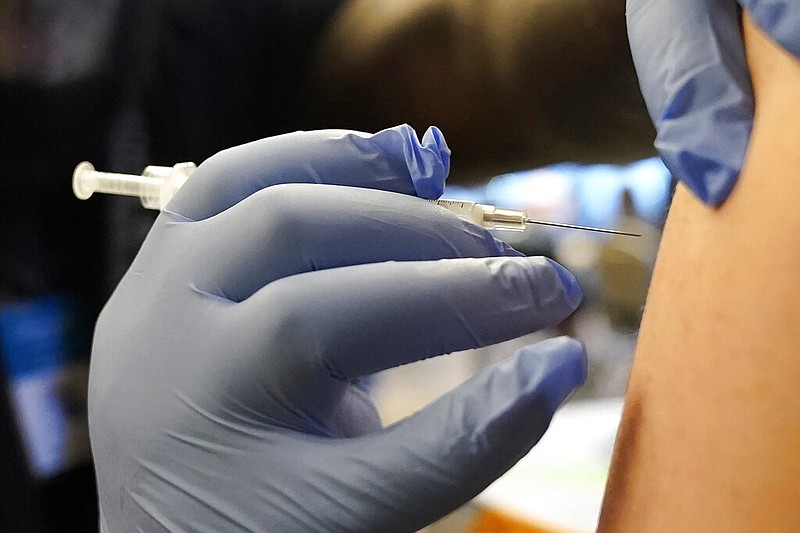Though the past few weeks have seen a steady decline in most COVID-19 statistics, Garland County Health Officer Dr. Gene Shelby said in his weekly report Monday that last week saw 76 new positive cases reported in the county, compared to the prior week's 46 cases and 64 the week before.
"We continue to see a decline of reported active cases, but at a much slower rate," Shelby said.
Garland County currently has 87 active cases compared to 95 and 157, respectively, the weeks before. The number of COVID-related deaths continues to rise significantly, with five more last week, for a total of 541 since the beginning of the pandemic.
According to a news release from the city of Hot Springs, CHI St. Vincent Hot Springs and National Park Medical Center reported two COVID-19 patients total, with one requiring ventilation.
Shelby attended the Arkansas Health Department's annual County Health Officers' Retreat over the weekend, which focused on the ongoing pandemic.
The retreat, held at the Winthrop Rockefeller Institute Conference Center on Petit Jean Mountain, in Morrilton, was the first to be held since 2019.
The conference featured presentations from physicians and staff at ADH, including ADH Director Dr. Jennifer Dillaha -- well known for her work throughout the coronavirus outbreak -- as well as former Arkansas Health Secretary Dr. Nate Smith, who is now deputy director for the Centers for Disease Control and Prevention's Public Health Service and Implementation Science.
Shelby said in an interview Monday that speakers discussed different aspects of the COVID-19 response and how ADH handled testing at its public health lab. Smith, he noted, was asked about the recent overall rise in animal-originated infectious disease and what is causing it.
Starting as an animal virus, many diseases have risen around the world by spreading to humans.
"The two obvious examples are the coronavirus that became COVID-19, and then more recently the monkeypox virus," he said. "And there are other viruses that they're dealing with at the CDC, things such as Ebola, which also came from an animal source. And going back further, is the HIV virus -- started as a transmission from chimpanzees to humans. He had some really interesting insights when asked if we could expect this to continue."
Smith explained in his presentation that he did indeed believe it will continue. One thing the CDC has done, he noted, is enhanced surveillance of different potential infectious diseases around the world. Shelby said the world's reaction to COVID-19 has taught scientists and researchers how to detect and hone in on such deadly viruses.
"He had some historical perspectives that when this new virus in China developed in December of 2019, of course, they didn't know what it was at all. But by, really, within a month, they had already completely mapped the genome of this virus, which ultimately was the COVID-19 coronavirus, and enabled the study of it and then the pretty rapid development of vaccines," he said.
Smith noted one of the factors regarding the continuance of spread is how the world's population is spread.
"What's happening now is that the world's population is expanding and there's more people that are living in close proximity to animals, that he foresees this (disease infection) from animals to humans to be more common," Shelby said.
"And it's probably been going on for centuries, but what's happening now is that there's more people more concentrated in different areas. The big thing that's happening is the expansion of worldwide travel, whereas in past, you'd have these infections that would go from an animal to human and it might spread to a couple villages, but then pretty much die off," he said.
"But with so much international travel, it does become worldwide pretty quickly. So I thought those were pretty good insights and I think the big take-away is that we've learned, not just in the United States, but all over the world, so much more about identifying the virus and then really have gotten a lot of experience about rapidly developing vaccines to slow the spread of these things."
